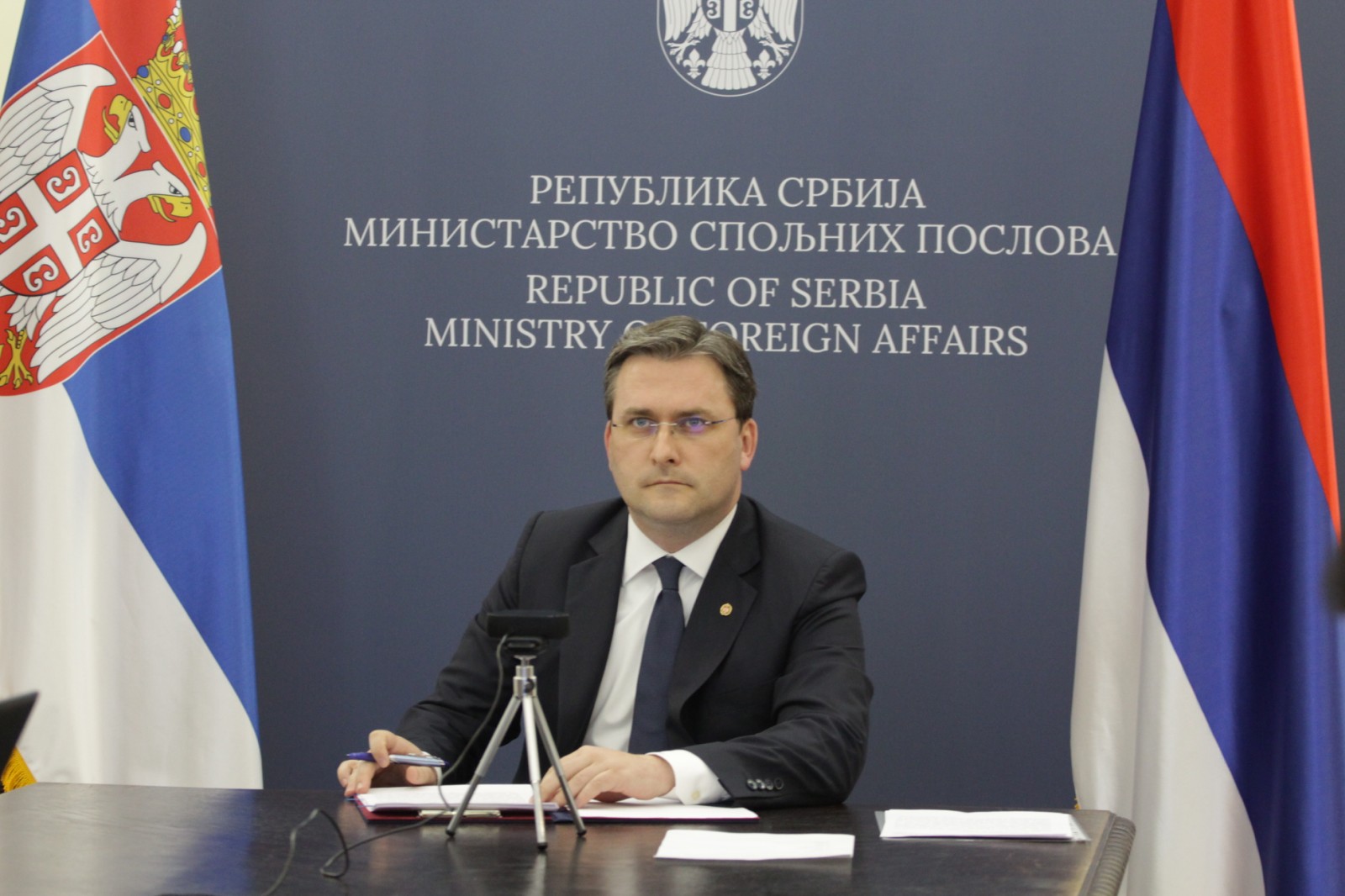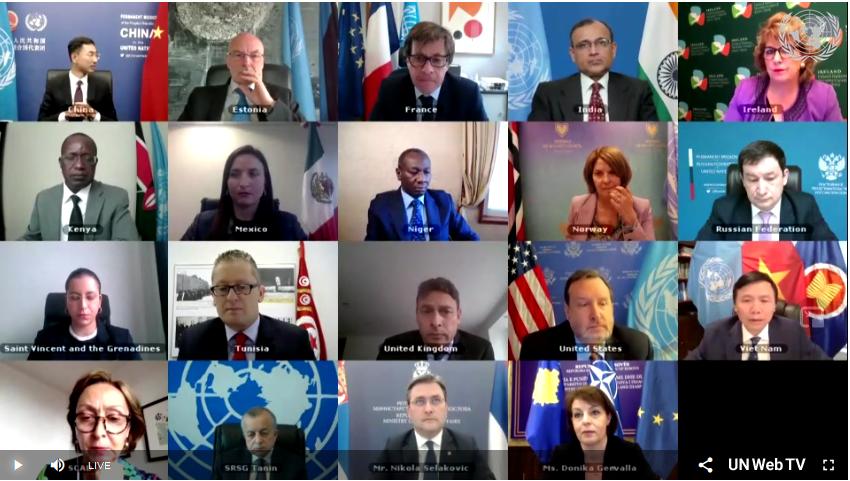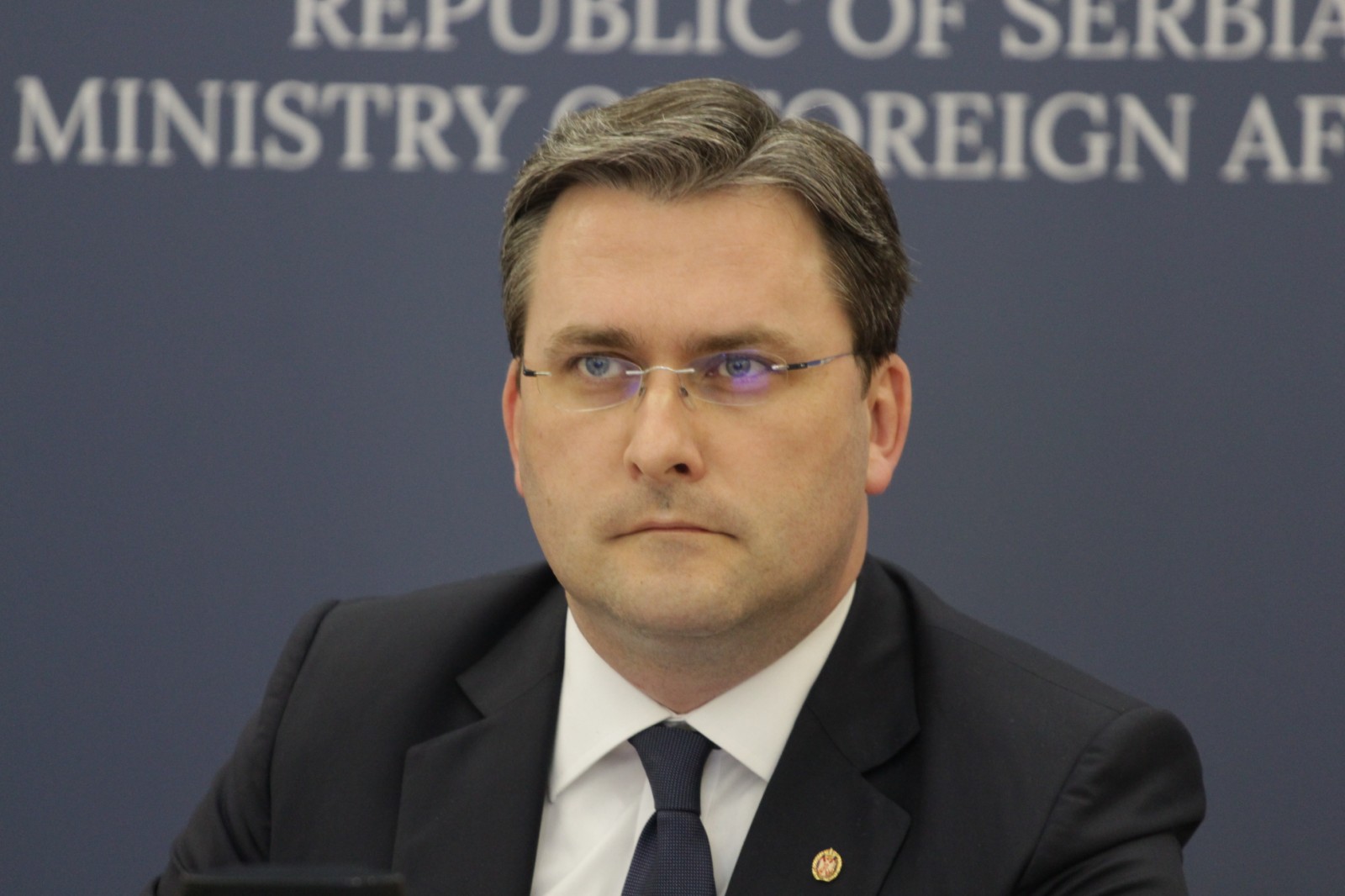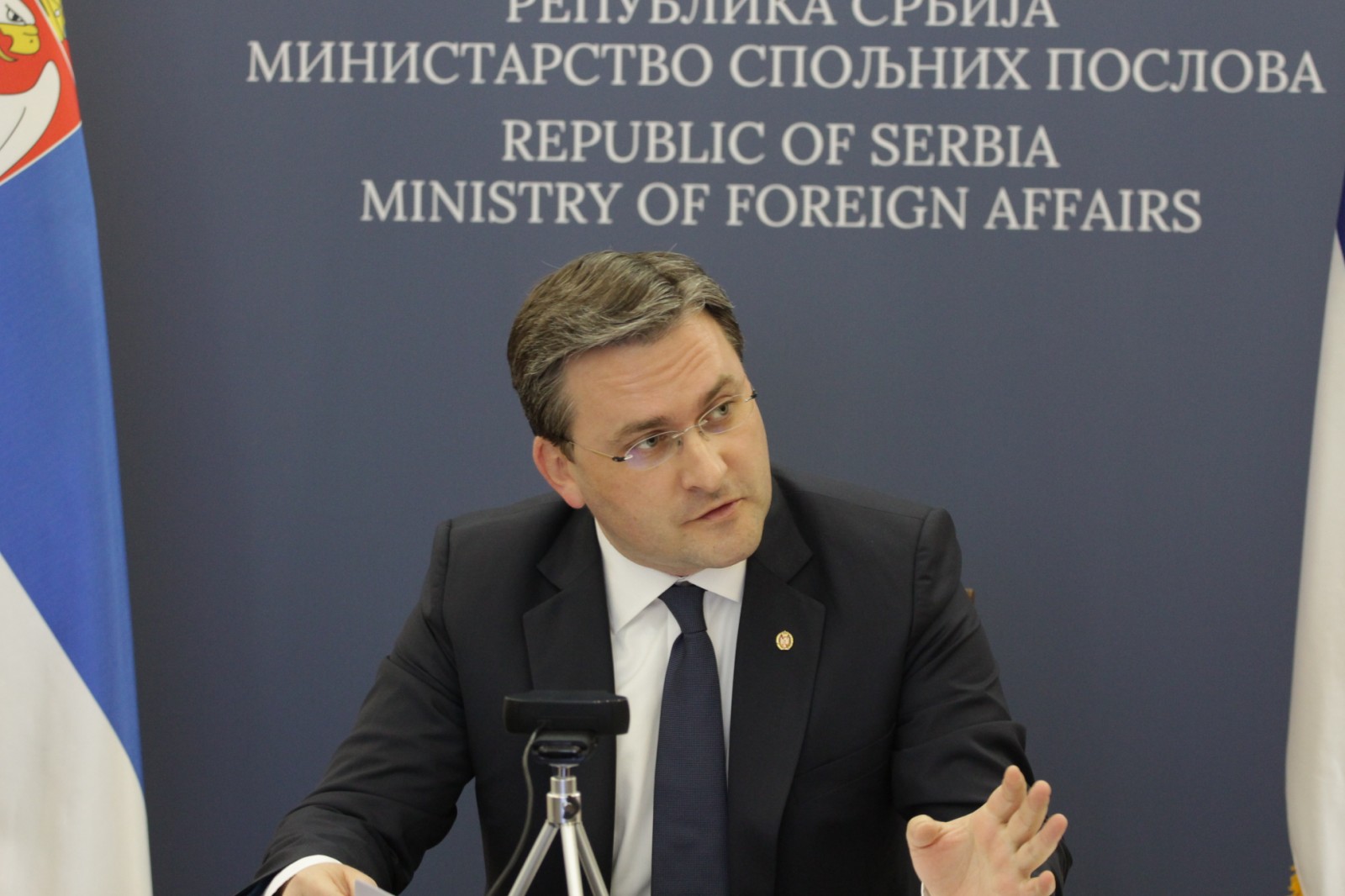Selakovic: Political extremism of Albanians in Kosovo and Metohija is becoming stronger
At the meeting discussing the Report of the UN Secretary-General on the work of UNMIK, Minister Selakovic recalled that the obligation to form the Community of Serb Municipalities remained unfulfilled for 2,917 days now and that, in fact, 19 April marked eight full years since the agreement was reached in Brussels, while Pristina still refused to follow up on its commitment and enable the formation of the Community of Serb Municipalities.
The Minister reminded that the current Prime Minister of the provisional institutions of self-government in Pristina repeatedly threatened to unite the self-proclaimed Kosovo and Albania, and that he also stated that the dialogue with Belgrade was low on the list of his priorities.
Minister Selakovic pointed out that it was high time for Albanian leaders in Pristina to show responsibility in fulfilling their commitments, but also a sincere commitment to reaching a compromise solution and building mutual trust.
"Serbia is determined and will not give up on identifying a compromise solution, which will be sustainable for future generations as well. The only way to build lasting peace and stability in our region is by working to build trust and insisting on positive political agendas", Selakovic concluded.
According to the Minister, lasting peace and stability can only be achieved if none of the participants in the dialogue pursued maximalist demands and insisted on the complete humiliation of the other.
He pointed out that the Serbian and Albanian peoples, as the two most numerous peoples in the Western Balkans, needed to find a way to reach reconciliation and a basis for cooperation, both in terms of the economy and in achieving shared prospects for membership of the European Union.
"Belgrade has made sincere steps in that direction, by being one of the initiators of the idea of relaxing the flow of people, goods, capital and services, popularly referred to as "mini-Schengen", the Minister underlined.
Pointing out that Serbia had time and time again demonstrated its commitment to dialogue as the only way towards a peaceful, political solution to the problem in Kosovo and Metohija, Selakovic underscored that the recent elections in the Province confirmed that political extremism among Albanians in Kosovo and Metohija was not decreasing, but on the contrary, was becoming stronger, which could be seen during the recent pre-election process.
Minister stressed that political pressures on Serbs continued even after the election process was completed, by denying Serbs fair representation in provisional institutions as the new so-called government in Pristina decided to assign only one ministry to the Serb community.
"Serb returnees represent a particularly vulnerable category, who spend their every day in fear of being attacked. I remind you that the southern Serbian province is still an area with the lowest return rate of displaced persons in the world", the Minister said and emphasized that, in the last year alone, more than 80 attacks and incidents took place in our southern province, targeting Serbs, their property and religious sites.
It is particularly worrying for the Serbian people in Kosovo and Metohija, Selakovic noted, that in the previous period, and especially in March this year, there were frequent physical attacks on the property of the Serbian Orthodox Church.
"A striking example of the disrespectful attitude towards Serbian cultural and religious monuments in the Province, whose exceptional universal value UNESCO confirmed by inscribing them on the World Heritage List, is the case of the Visoki Decani Monastery", the Minister underlined.
Furthermore, the Serbian Foreign Minister assessed as concerning the breaking into the Health Center in Strpce by police inspectors and officers, in January this year, who conducted a search aiming to discover Covid-19 vaccines there, originating from central Serbia.
"Although we consider this to be an intrusion into a health care institution, our reaction was restrained this time as well. We did not want our decisions to cause escalation and politicization of activities that are solely aimed at protecting public health. We organized the vaccination of citizens from Kosovo and Metohija at three locations in central Serbia and thus clearly demonstrated that people's lives are the top priority to us", the Minister stressed.
Minister Selakovic stated that Serbia highly valued the activities of UNMIK mission in Kosovo and Metohija and that it supported it in carrying out its work as efficiently as possible and undiminished in scope, aiming to build and preserve security in the Province.
Selakovic said that the international missions in Kosovo and Metohija - UNMIK, KFOR, EULEX and the OSCE mission, under the administration of the United Nations and in line with UNSC Resolution 1244, played a key role in the preservation of peace and protection of the population.
"We support and respect their engagement and efforts made in the framework of their mandates, with the common goal of creating conditions for a peaceful and safe coexistence of the inhabitants of Kosovo and Metohija. The Serb and other non-Albanian population in Kosovo and Metohija have the utmost confidence in the international presence and consider it a guarantor of security and a barrier against the arbitrariness of the provisional institutions in Pristina", the Minister emphasized.
He said that this demonstrated the need that international missions remain engaged in an undiminished scope, in order to consistently implement UNSC Resolution 1244.
Selakovic further emphasized the importance of KFOR international forces and pointed out that any unilateral attempt to assign to someone else or that someone else assumes a part of KFOR's mandate and responsibilities constitutes a violation of UNSC Resolution 1244.
The Minister also noted as unacceptable the unilateral decisions on the formation of the Pristina "Ministry of Defence" and launching the process of transforming the so-called "Kosovo Security Forces" (KSF) into the so-called "Kosovo Army".
At the beginning of his statement, Minister Selakovic lodged a protest against the abuse of the video format of the session by the representative of Pristina as she had a flag of the self-proclaimed "Kosovo" placed behind her, and the representative of Russia did the same.




